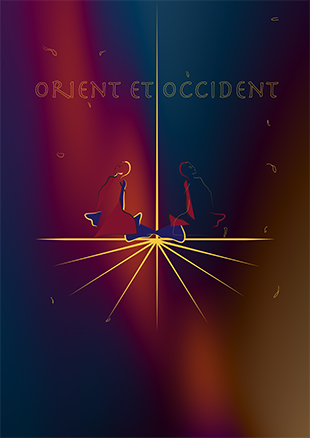Festival 2021
It is a pleasure to announce that despite the virus and the bite of the cold outside this year’s festival is still taking place – this time in December.
An attentive festival goer will certainly have noticed that the phrase “early music? in the name of the festival has been occurring less and less frequently over the years, while the pair of words “Orient et Occident? – East and West – has remained central in it. This development has a definite reason. The festival still aims to juxtapose and compare the musical cultures of the Orient and the Occident through the prism of history. In recent years increasing tendencies have been emerging for musicians who have become deeply absorbed in various ancient traditions to start to perform and compose contemporary music. This has become evident both among those specialising in European early music as well as musicians representing classical Asian cultures of music. This has enriched the soundscapes of contemporary music in an extremely fascinating manner, not only due to the amount of knowledge and experience those musicians have been bringing with them to the new music, but also thanks to the fact that totally new nuances of sound have been brought along by completely different musical instruments, no matter whether these derive from early European or other traditional high cultures.
At this year’s festival we will hear more contemporary music born out of tradition than ever. The first night of the festival starts with the performance by Danish virtuoso flautist Poul Høxbro, who uses xun, the Chinese ocarina, to play both ancient Chinese music as well as contemporary pieces written for the instrument. In order to compare the sounds, also virtuoso pieces for the traditional Italian ocarina from the 19th century will be heard side by side with contemporary music written for the instrument. NB! Unfortunately Poul Høxbro can not participate at the festival this year and we have chance to listen instead to the flute music from different areas perormed by Neeme Punder. The first night of the festival will continue with music from Ancient Greece, performed by one of the leading specialists in the field Conrad Steinmann, Professor Emeritus from the Schola Cantorum Basiliensis in Switzerland. The music that will sound at the concert is not, however, a performance of preserved historical fragments, but a contemporary reconstruction that follows all the ancient rules and principles, both from the point of view of the technique of composition and the instruments. In addition to aulos, played by Conrad Steinmann, from among the instruments of Ancient Greece also barbitos and kithara, played by Giovanni Cantarini (Italy) can be heard. On the second festival night Ahmad Al Khatib (Palestine/Sweden), one of the most renowned ud players in today’s world, will perform contemporary new music that has its roots in Arabic classical music. His long-time fellow ensemble member Youssef Hbeisch (Palestine/France) will accompany him on classical Arabic percussion instruments. The repertoire of the hosts of the festival, FA Schola Ensemble, whose focus in previous decades has been on the instrumental music of medieval Europe, has not remained untouched by new contemporary works either.
As the taste of the music is in the hearing, everybody is welcome to listen and to appreciate!
Wishing you a beautiful festival experience!
Raho Langsepp
Artistic Director of the Festival




